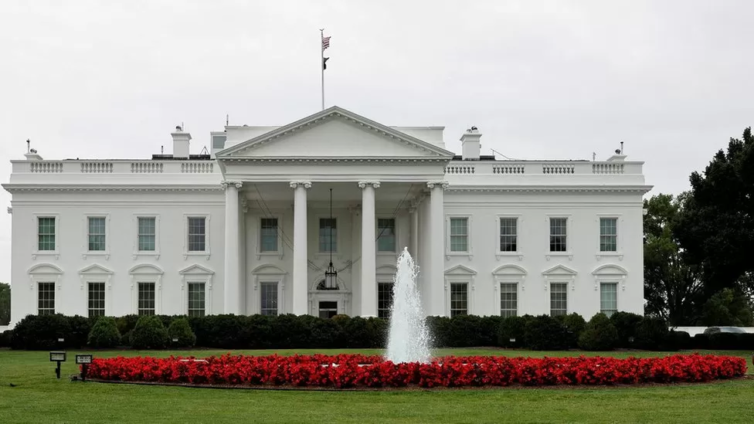The US Secret Service has closed its investigation into the discovery of cocaine in the White House.
It said it had attempted to determine a suspect through fingerprints, DNA traces, and video evidence, but had not been able to do so.
The cocaine was discovered earlier this month in a vestibule leading to the lobby of the West Executive Avenue entrance to the White House.
President Joe Biden and his family were at Camp David in Maryland at the time.
The small plastic bag used to contain the drugs was found in an area which can be accessed by members of the public, and where mobile phones and other personal devices are stored before entering the White House.
After it was first discovered, safety closures were put in place so it could be determined that the substance "was not a chemical or radiological material that threatened the security of the White House", the Secret Service said in a statement.
Tests of the material determined it was cocaine, and further analysis was carried out on the composition of the substance. Advanced fingertip and DNA analysis on its packaging were also carried out by the FBI's crime laboratory.

Meanwhile, the Secret Service continued to investigate how the substance arrived in the White House, reviewing security systems in the day leading up to the discovery of the cocaine.
It produced "an index of several hundred individuals" who "may have accessed" the area where the drug was found.
On Wednesday, the Secret Service received the forensic evidence back from the FBI. This showed it did not have enough DNA evidence for comparison, and had not developed "latent fingerprints".
"Therefore, the Secret Service is not able to compare evidence against the known pool of individuals," it said in a statement.
It added that the surveillance footage had also not been of use, and it would mean trying to single out someone from "hundreds of individuals" who passed through the vestibule - without having any physical evidence to do so.
The Secret Service added that it it "takes its mission to protect US leaders, facilities, and events seriously" and it is "constantly adapting to meet the needs of the current and future security environment".
Cocaine is a Schedule II drug under the Controlled Substances Act, meaning it has a high potential for abuse, according to the US Drug Enforcement Administration.
Latest Stories
-
Minority Chief Whip raises concerns over ambiguities in Gold Board bill
38 minutes -
Mahama warns leaders against ‘decisions that kill’ after debt crisis claims lives
40 minutes -
Wisconsin Attorney General sues to block Elon Musk $2m election giveaway
46 minutes -
Disney faces US investigation over DEI practices
51 minutes -
Hair relaxers linked to increased breast cancer risk in Ghanaian women
1 hour -
Columbia University president resigns amid Trump crackdown
1 hour -
CJ removal petition: Citizens must not sit back and watch politicians to get their way – NPP MP
1 hour -
Thousands gather to bid farewell to ageless Ga music icon Naa Amanua Dodoo
1 hour -
From despair to hope: Khadijah Bawuma receives life-changing scholarship after Myjoyonline report
2 hours -
Mob kills seven suspected kidnappers in Nigeria’s Edo state
3 hours -
Joseph Paintsil to make injury comeback after six weeks out
3 hours -
14 arrested over missing ECG containers at port
3 hours -
Energy Minister demands forensic audit over missing ECG containers
3 hours -
Joseph Paintsil unveils debut EP ‘Emergency’, set for April 4
3 hours -
Petition to remove CJ is not politically motivated – Adawuda
3 hours

